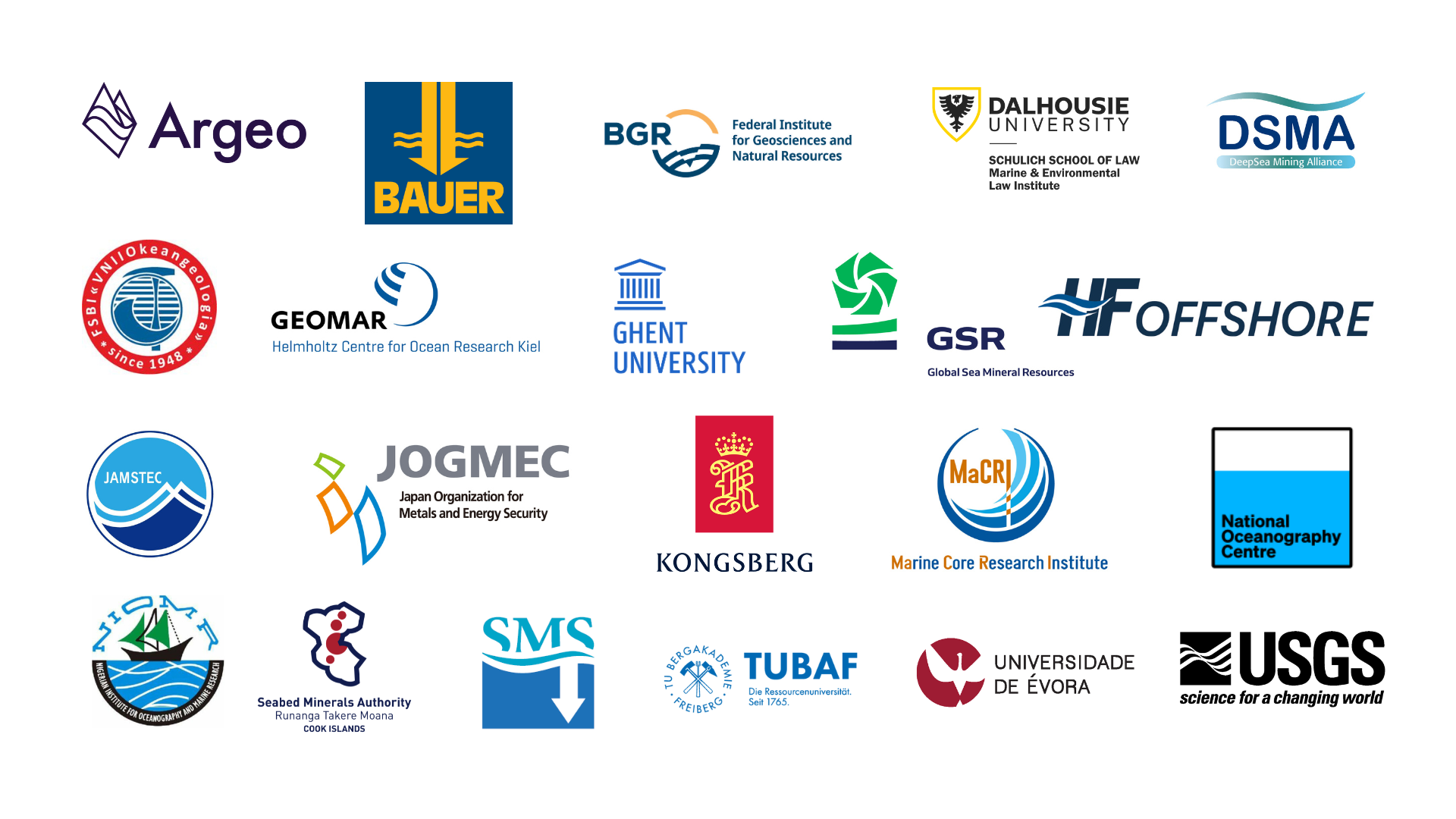Partnerships are at the heart of the way that ISA works. More specifically, its Strategic Plan and High-Level Action Plan for 2019–2025 note the importance of strategic partnerships in fulfilling ISA’s roles and responsibilities. Partnerships are viewed as particularly important in the area of capacity development.
The are indeed vital in pushing the ISA Capacity Development Strategy forward, opening up opportunities for collaboration and avoid the duplication of efforts across organizations.
In this perspective, partnerships are also a fundamental pillar of the Deep Dive e-learning platform. Indeed, each module of Deep Dive benefits from the peculiar competencies of experts from universities, research institutions, industrial actors and other stakeholders, that contribute to advance the work and mandate of ISA.

Our contributing partners
Argeo is an innovative Offshore Service company on a mission to revolutionize ocean surveying and inspection through autonomous robotics solutions.
The BAUER Group is a leading provider of services, equipment and products dealing with ground and groundwater, providing: Geotechnical solutions; Equipment; and providing resources for the water mining and environmental industries.
The Federal Institute for Geosciences and Natural Resources is committed to sustainable use of natural resources and protection of the human habitat. As a neutral institution we advise ministries and the European Community and act as partners in industry and science.
The Seabed Minerals Authority (SMA) is the primary regulator of seabed minerals (SBM) activities in the Cook Islands. It oversees the implementation of the Seabed Minerals Act 2019 on behalf of the government. It regulates and monitors SBM activities.
In addition to scholarly research and publication activities, faculty, associates and staff carry out research projects and provide advisory services to agencies of the United Nations, regional organizations and assists government departments and non-governmental organizations in Canada and internationally.
FSBI is known as base scientific institution of Ministry of Natural Resources and Environment of the Russian Federation and the Federal Agency for Subsoil Use of the Russian Federation (Rosnedra) in the field of the geological study of the Continental Shelf, World Ocean, Arctic and Antarctic.
Global Sea Mineral Resources NV (GSR) is a subsidiary of the DEME Group focused on the development of sustainable ocean mineral resources.
Founded in 2023 by Capt. Heiko Felderhoff, HF Offshore is actively involved in research and development to innovate new technologies and methodologies that enhance efficiency, safety, and environmental sustainability in the offshore industry.
JOGMEC integrates the functions of the former Japan National Oil Corporation, charged with securing a stable supply of oil and natural gas, and the former Metal Mining Agency of Japan, responsible for ensuring a stable supply of nonferrous metals and minerals, and enforcing mine pollution control.
KONGSBERG is an international technology group that delivers advanced and reliable solutions that improve safety, security and performance in complex operations and under extreme conditions.
Nigerian Institute for Oceanography and Marine Research (NIOMR), is a multidisciplinary marine research institute and Nigeria’s prime institute for Marine Sciences.
The NOC mission is to make sense of changing seas, upon which future human prosperity and wellbeing depends. The purpose of NOC is to gain deeper knowledge of the ocean to help every living thing on our planet flourish.
The TU Bergakademie Freiberg is the world’s oldest existing academic research and teaching institution dedicated to mining and all related fields. With a strong global footprint the University is partner in many acclaimed projects; in terrestrial mining as well as in deep sea projects or space resources.
The Marine Biology Research Group at Ghent University focuses on studying marine ecosystems to understand their biodiversity, ecological processes, and the effects of environmental changes.
USGS provides science for a changing world, which reflects and responds to society’s continuously evolving needs. As the Department of the Interior’s science arm, it provides data and expertise to support decisions on environmental, resource, and public safety issues.
